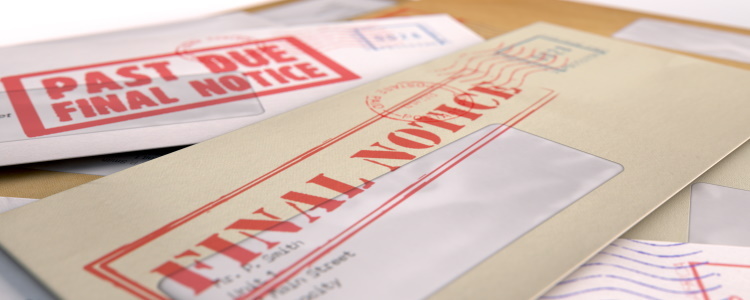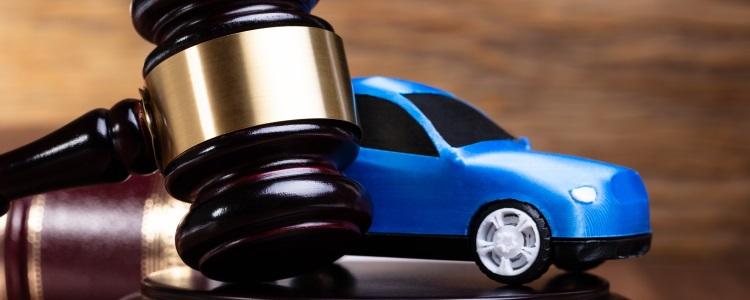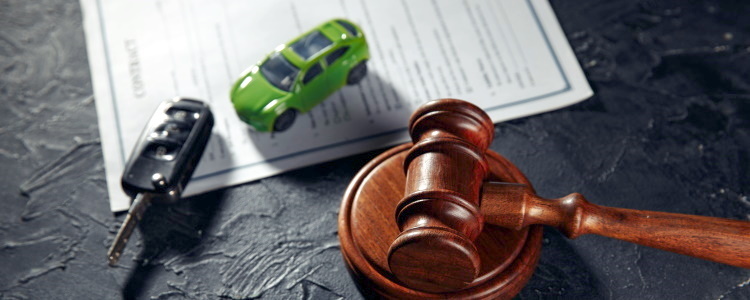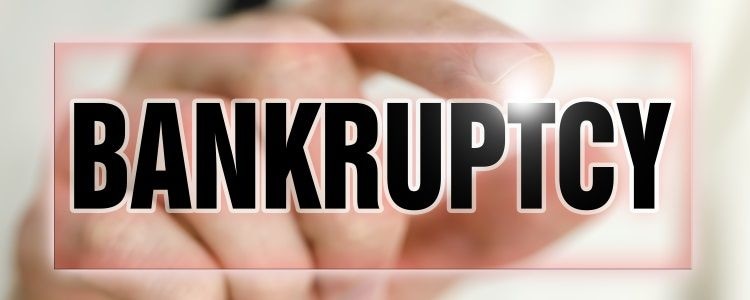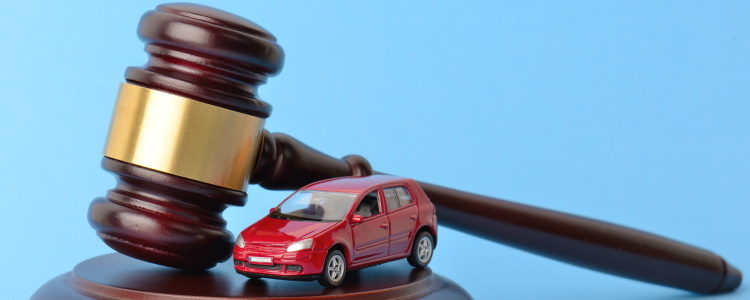In most cases, bankruptcy does lower your credit score. Here’s why, and the things you can do to turn it back around after it’s discharged.

How Bad Does Bankruptcy Hurt Your Credit Score?
Does Bankruptcy Create Bad Credit?
One of the reasons bankruptcy hurts your credit is because you’re not making payments like you normally would outside of an active bankruptcy. Payment history is the biggest determining factor of your credit score. Once you declare bankruptcy, you’re saying you can’t repay your loans in the way you originally agreed to or that you can only pay a portion of what you owe to your creditors through bankruptcy.
Another reason why bankruptcy hurts your credit is that filing for bankruptcy and attempting to wipe away your debts tells the credit scoring models that you were unable to handle the debt you took on. However, there are many reasons why someone may need to file bankruptcy such as a sudden job loss, medical emergency, divorce, or other unexpected life events. No matter the underlying reason(s) you decide to file bankruptcy, it can still cause a lot of damage.
And, it should be considered a last resort if you can’t repay your debts.
The damage that happens to your credit score after you file for bankruptcy depends on the state of your credit before you file. If your credit score wasn’t great before filing, then you may only see a modest drop in points. But if your credit score was in good shape, then you may see a steeper drop in your credit score.
Effects on Your Credit: Chapter 7 vs. Chapter 13
FICO, the most commonly-used credit scoring company, states that whether you qualify for Chapter 7 or Chapter 13, the impact on your credit score is the same.
However, Chapter 7 stays on your credit reports for longer – typically up to ten years starting from the filing date. It’s a short process, and you’re only in active bankruptcy for a few months until it’s discharged if you’re successful.
Chapter 13, on the other hand, stays in your credit reports for up to seven years starting from the date you filed, and you’re in active bankruptcy for either three or five years. Chapter 13 is a repayment bankruptcy, so you work with your trustee on a payment plan to repay as much of your debt as you can. Once you’re done with Chapter 13, you only have a few years left of it being reported on your credit reports.
Since Chapter 7 stays on your credit reports for longer, you feel the impact on your credit score and reports for longer, but in either case, the effects of the damage lessen over time. If you’re looking for less of an impact long-term, and you can qualify for Chapter 13, it may benefit you more in the future.
After Bankruptcy Discharge
If you successfully complete your bankruptcy, it gets discharged and any remaining debts that weren’t paid in the bankruptcy are wiped away. However, the negative effects of bankruptcy can linger once you get those discharge papers. There are ways to recover post-bankruptcy, though, and one of those ways is taking on new credit that you can handle.
It’s important to remember that time heals credit reports. Over time, negative marks such as bankruptcy lose some of their effectiveness, so with each passing year, the bankruptcy on your credit reports impacts your credit score less and less. Once it falls off your credit reports, it no longer has an impact on your credit score.
Taking on New Credit After Bankruptcy
Once your bankruptcy is discharged, it’s much easier to qualify for new credit. In fact, a lender may view a borrower with a recently discharged bankruptcy a little more favorably than a borrower with habitual bad credit – but it depends on your overall financial situation and your lender.
 Whenever you’re a bad credit borrower looking to take on new credit, your income, debt to income ratio, credit reports, down payment, and more are looked at to determine your ability to repay the loan. If you apply for new credit with a lender that specializes in bad credit and bankruptcy circumstances, then you may have a higher chance of qualifying.
Whenever you’re a bad credit borrower looking to take on new credit, your income, debt to income ratio, credit reports, down payment, and more are looked at to determine your ability to repay the loan. If you apply for new credit with a lender that specializes in bad credit and bankruptcy circumstances, then you may have a higher chance of qualifying.
Your finances may be in better shape because your bankruptcy was discharged, but that doesn’t mean you should go bananas and take on a lot of new credit all at once. Here are some tips to help you while you’re rebuilding your credit score post-bankruptcy:
- Take on new credit sparingly – Whenever you apply for new credit and the lender does a hard inquiry, it lowers your credit score a little bit for up to 12 months. If you apply for multiple lines of credit from many different lenders of varying types, it can hurt your credit even more.
- Consider a credit-builder loan – These loans are designed to help borrowers build a savings and repair credit. You make loan payments until you complete it, but all of the payments are put in a savings account that you get to keep at the end of the term. The on-time payments can improve your credit and you can walk away with a nice savings.
- Pay all your bills on time – Speaking of payment history, making sure all of your current bills and loans are current is necessary to repair your credit score. Remember: payment history carries the most weight in your credit score, so timely payments need to be a priority. After bankruptcy, much if not all of your debt may have been wiped out, making it easier to maintain a good payment history.
- Work with bankruptcy lenders – Although a recently discharged bankruptcy means you have a higher chance of qualifying for credit than an active bankruptcy, not all lenders can assist with tough credit situations. Despite the discharge, many traditional lenders can still be wary to approve you for a loan. Subprime lenders that are signed up with special finance dealerships specialize in assisting with bad credit, no credit, and bankruptcy borrowers with vehicle financing.
Credit repair can feel daunting, but it’s possible with some patience and action. You can also monitor your credit reports every week for free right now. Visit www.annualcreditreport.com to request your three national credit reports from Experian, TransUnion, and Equifax. The COVID-19 pandemic caused some financial strife, so instead of only one free credit report every 12 months, you can get weekly ones until April 2022 from each bureau.
Auto Loans and Bankruptcy
Filing for bankruptcy can not only hurt your credit score temporarily, but it could have also caused some issues with your transportation. Some borrowers aren’t able to keep their car and loan after they file for bankruptcy. And the kicker? Having a bankruptcy on your credit reports can make it tough to get approved for another auto loan with some lenders.
There are lenders willing to assist borrowers during and after bankruptcy, though. Instead of just relying on your credit scores to determine your creditworthiness, they take an in-depth look at your situation. These lenders, called subprime lenders, are signed up with select special finance dealerships, and we want to help you find one.
At Auto Credit Express, we’ve made it our mission to help borrowers with credit challenges get the auto loans they need. With our nationwide network of special finance dealerships, we can look for a dealer in your local area to work with you. Get started today by filling out our free auto loan request form.

Senior Auto Financing Editor
Suggested Posts For You
Receive Free Updates
Get the latest credit tips, resources and advice delivered straight to your inbox.
